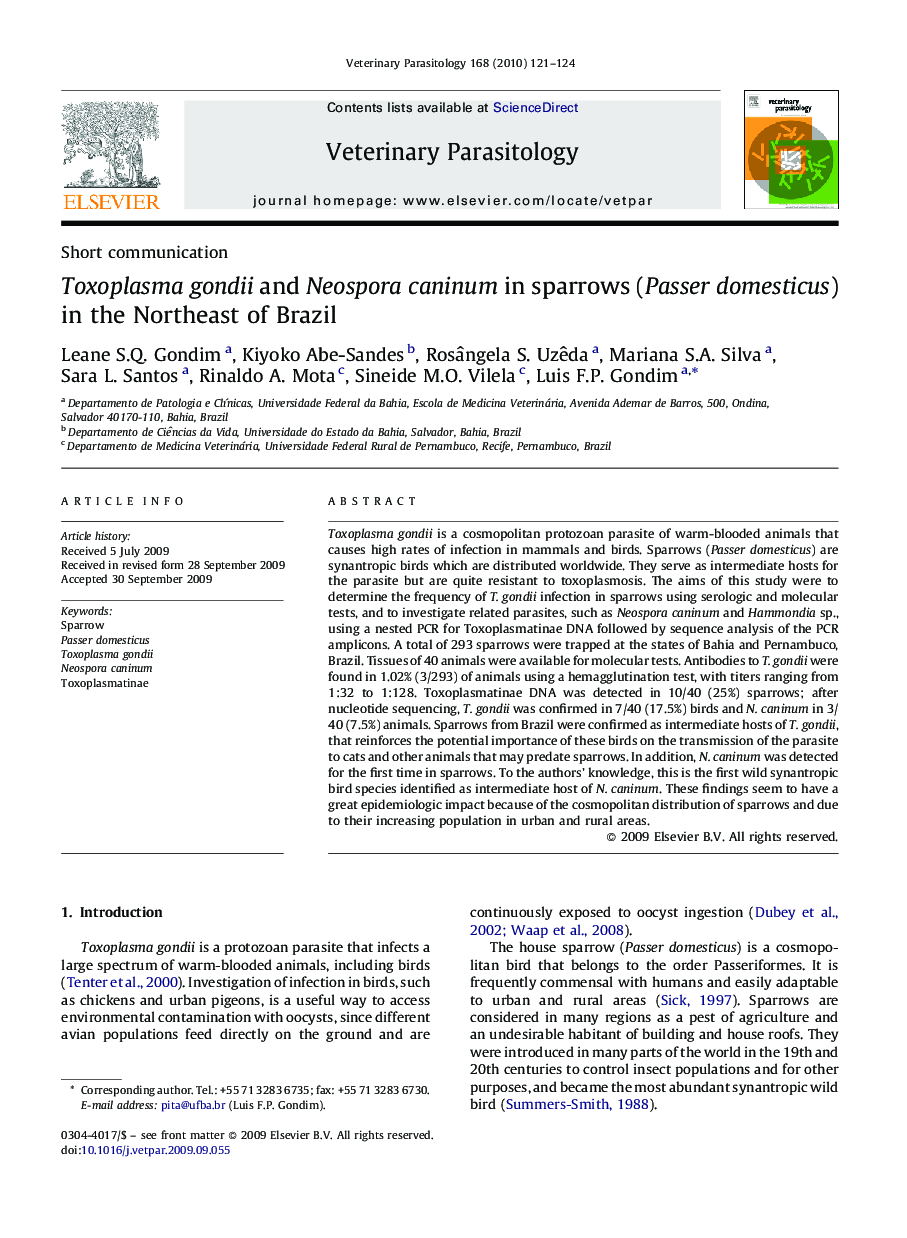| Article ID | Journal | Published Year | Pages | File Type |
|---|---|---|---|---|
| 2470844 | Veterinary Parasitology | 2010 | 4 Pages |
Toxoplasma gondii is a cosmopolitan protozoan parasite of warm-blooded animals that causes high rates of infection in mammals and birds. Sparrows (Passer domesticus) are synantropic birds which are distributed worldwide. They serve as intermediate hosts for the parasite but are quite resistant to toxoplasmosis. The aims of this study were to determine the frequency of T. gondii infection in sparrows using serologic and molecular tests, and to investigate related parasites, such as Neospora caninum and Hammondia sp., using a nested PCR for Toxoplasmatinae DNA followed by sequence analysis of the PCR amplicons. A total of 293 sparrows were trapped at the states of Bahia and Pernambuco, Brazil. Tissues of 40 animals were available for molecular tests. Antibodies to T. gondii were found in 1.02% (3/293) of animals using a hemagglutination test, with titers ranging from 1:32 to 1:128. Toxoplasmatinae DNA was detected in 10/40 (25%) sparrows; after nucleotide sequencing, T. gondii was confirmed in 7/40 (17.5%) birds and N. caninum in 3/40 (7.5%) animals. Sparrows from Brazil were confirmed as intermediate hosts of T. gondii, that reinforces the potential importance of these birds on the transmission of the parasite to cats and other animals that may predate sparrows. In addition, N. caninum was detected for the first time in sparrows. To the authors’ knowledge, this is the first wild synantropic bird species identified as intermediate host of N. caninum. These findings seem to have a great epidemiologic impact because of the cosmopolitan distribution of sparrows and due to their increasing population in urban and rural areas.
